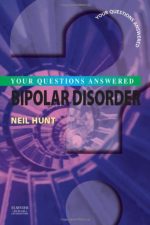Dr NEIL HUNT
Consultant Psychiatrist
Cambridge
Due to very high demand, my waiting time is several months for new referrals
What I offer

I work for the National Health Service and also in private practice in Cambridge.
I see private patients at the Nuffield Hospital and the Coach House Clinic.
You can write to me at:
The Nuffield Hospital
4 Trumpington Rd,
Cambridge
CB2 8AF
You can email me directly or call my private secretary’s telephone number below.
I only see patients who are referred by their General Practitioners. This is the route that is advised by the General Medical Council so that you only come to see the right specialist and that your GP is involved in your care.
I have also acted as an expert witness for Courts and Tribunals. And am a member of the Society of Expert Witnesses.
What can you expect from a psychiatric consultation ?
To introduce the meeting I will usually ask about who you live with, what your family situation is and your work. We will discuss what are your current concerns and the symptoms that have led you to want a consultation. This usually focuses on your mood, anxieties, thinking and behaviour, including eating and sleeping. How these problems have affected your ability to function at home and outside. You may have already had some treatment and we will review this.
Many illnesses run in families and I need to find out if any of your relatives have had problems with their health both physical and mental. Your personal history needs to be discussed – birth, childhood, education and work life.
Relationships are an important part of most people’s lives and this can give a good insight into your personality.
Many people have problems with alcohol and drugs even if they do not have an addiction problem and this will be reviewed along with any physical illnesses especially those affecting the brain. I will check what medication you are taking.
There may be particular issues for you that have not been covered in this review and you need to have a chance to bring these up.
The next step is to agree the appropriate diagnosis and make a plan of treatment. You may need some investigations of your physical state either by examination or blood tests and occasionally scans of the brain. We wll also look at lifestyle issues such as exercise and sleep pattern.
Many psychiatric illnesses can be treated with medication and this is an area which we may discuss in detail. We are also likely to review whether you could also benefit from some talking treatment.
We would finish by agreeing whether we should meet again, sometimes with other people who are important such as a partner or relative. At times the history given by a family member can be vital to making an accurate diagnosis. Many patients bring along someone to their first appointment and you are welcome to do so.
You can read more about this process on the website of the Royal College of Psychiatrists.
What are
my
qualifications?
Six years at medical school is the basic requirement to be a Doctor. I did the first three years at Cambridge University and then finished at a Clinical School, St George’s Hospital in London. After qualification as a Doctor I worked in Medicine, Surgery and Accident and Emergency in London. Needing to understand more about the brain I took a six month post in Neurology before starting to train in Psychiatry.
I did my basic psychiatric training for three years at St Bartholomew’s Hospital in London with posts also in Hackney. This led to the exams for Membership of the Royal College of Psychiatrists (MRCPsych) when I had completed this practical training.
Understanding research is vital for doctors and so I spent three more years doing a project on the Causes of Recurrence in Bipolar Disorder. This was a Doctorate thesis leading to a Doctor of Medicine (MD) degree from the University of London in 1993.
Two more years as a registrar on the Oxford higher training scheme completed my training.
So 15 years after starting my training I was appointed as a Consultant Psychiatrist in Cambridge.
Bipolar
I have been interested in bipolar disorder since I completed my MD thesis and have published a book about the condition
One question that I am often asked is:
How do I know if I have Bipolar?
To be bipolar you need to have experienced mania or hypomania. This is a distinct episode of changed mood – usually elevated mood, sometimes irritable. It would have lasted at least 4 days but usually longer. This is a high energy state. You are moving more, talking more and faster. A reduced need for sleep – often down to just a couple of hours and for several nights in a row
You will usually have had some mood problems – depression and anxiety from teenage years. But these would have been episodic, that is you will also have had long periods of normal mood. Often the mood problems seem to come from nowhere.
The depressed periods are also episodic and are persistent low energy states – usually lasting several weeks – often sleeping more, not able to concentrate or motivate yourself.
Some people lose touch with reality with hallucinations or delusions but only along with an extreme mood.
Other people would notice the mood changes – the energy change is usually very clear even if you try to hide it. You may not think the elevated mood is abnormal but others will definitely think so.
Signs that mood changes may not be bipolar.
There are other forms of mood instability such as in borderline personality.
If you mood changes very quickly – in a moment, in a strong reaction especially to criticism or rejection.
If you are feeling hyper for a few hours or a night but then crashes. If you never have had a stable time in your mood since early teenage years.
If you find relationships are a real difficulty for you as you can be very intense but then break up.
If you are getting persistent psychotic symptoms including paranoia and these continue even if your mood is not extreme.
If you think you may be bipolar then read about the various forms of mood instability and try to track your moods.
If others are concerned about your mood then that is a strong sign that you should get an assessment from a psychiatrist who can help you to look at this diagnosis.
Recognition of any problem is the major step in dealing with a problem.
This is my book if you are interested in finding out more:
It is now available in a kindle version
